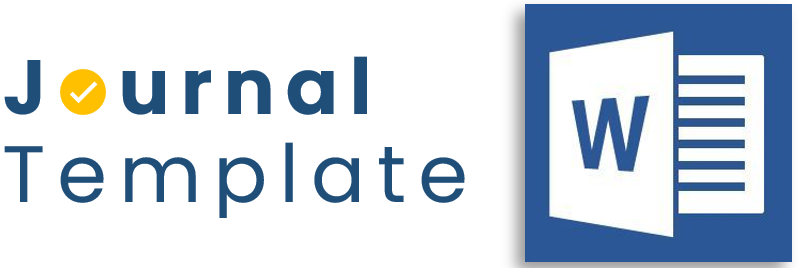Transformation of Pesantren Education in the Digital Era: AI Innovation and Adaptation for Technology-Based Learning
DOI:
https://doi.org/10.62123/enigma.v2i2.58Keywords:
Digital transformation, Artificial intelligence, Pesantren, Educational innovation, Technology-based learningAbstract
Pesantren as a traditional Islamic educational institution faces challenges in navigating the digital era. Artificial Intelligence (AI) offers significant opportunities to enhance learning effectiveness, administrative systems, and educational management in pesantren. This article examines how AI can be adapted in pesantren education, covering implementation, benefits, and challenges. Using a qualitative approach and literature review, this study finds that AI can support curriculum management, personalize learning, and improve access to broader educational resources. However, AI adaptation also faces obstacles such as infrastructure limitations, human resources, and ethical considerations in applying technology within the pesantren environment. Therefore, an appropriate AI implementation strategy must be designed to align with pesantren values without eliminating its traditional characteristics.
Downloads
References
[1] Ahmad, M. Z. (2020). "The Role of Artificial Intelligence in Modern Education." Jakarta: Gramedia Pustaka Utama.
[2] A. Amran and R. Razak, “The Role of AI in Digital Transformation of Islamic Schools,” J. Educ. Technol., vol. 32, no. 1, pp. 78–92, 2021.
[3] A. A. Hamid and R. Yusuf, “Digital Transformation of Pesantren Education: Strategies and Barriers,” J. Islam. Digit. Learn., vol. 10, no. 3, pp. 30–48, 2022.
[4] A. Nasir, “Digital Literacy in Islamic Schools: The Need for AI Integration in Pesantren Curriculum,” J. Educ. Reform, vol. 17, no. 1, pp. 15–35, 2020.
[5] Berkowitz, D., & Johnson, R. (2019). "Adapting to Digital Education: Challenges and Opportunities." Journal of Digital Learning, 10(3), 45-60.
[6] B. Sugiono, “A Study on Technological Readiness of Islamic Boarding Schools for AI Adoption,” J. Digit. Islam. Stud., vol. 6, no. 4, pp. 122–140, 2021.
[7] Dewi, T. P. (2021). "Transformasi Pendidikan Pesantren di Era Digital." Yogyakarta: Pustaka Pesantren.
[8] F. Khan and Z. Ahmed, “Adoption of AI in Traditional Educational Institutions: A Comparative Study of Islamic Schools and Secular Schools,” Educ. Innov. J., vol. 25, no. 4, pp. 70–90, 2022.
[9] Hendrawan, D. S. (2022). "Pesantren dan Pendidikan Berbasis Teknologi: Memahami Perubahan dan Tantangan." Journal of Islamic Education, 15(2), 100-112.
[10] H. Gunawan and R. Setiawan, “AI Integration in Indonesian Pesantren: Readiness and Challenges,” Indones. J. Educ. Stud., vol. 14, no. 2, pp. 100–120, 2021.
[11] H. Rahmat and W. Suryani, “Pesantren in the Digital Era: Overcoming Barriers to AI Implementation,” Indones. J. Educ. Res., vol. 19, no. 2, pp. 200–215, 2022.
[12] H. Zainuddin, “Artificial Intelligence and the Future of Islamic Education in Indonesia,” J. Educ. AI, vol. 8, no. 3, pp. 45–67, 2023.
[13] Johnson, Deborah G. (2011). "Computer Ethics." Prentice Hall.
[14] Kamal, S. (2023). "Artificial Intelligence in Education: Implications for Traditional Institutions." International Journal of Educational Technology, 34(4), 278-290.
[15] M. Hidayat and N. Rahman, “Artificial Intelligence in Islamic Education: A Systematic Literature Review,” Int. J. Technol. Educ., vol. 20, no. 1, pp. 22–39, 2023.
[16] M. Azmi and R. Wahid, “Implementing AI-Based Learning in Traditional Islamic Institutions: A Case Study,” J. Islam. Educ. Res., vol. 28, no. 3, pp. 112–130, 2023.
[17] M. Ihsan, “Technology and Learning in Pesantren: Towards a Digital Islamic Education Model,” Islam. Educ. Rev., vol. 18, no. 2, pp. 88–105, 2020.
[18] M. S. Al-Fadhli, “Artificial Intelligence in Islamic Education: Challenges and Opportunities,” Int. J. Islam. Stud., vol. 15, no. 2, pp. 45–60, 2022.
[19] P. Brown and L. Jones, “Technology Adoption in Religious Education: The Case of AI Implementation in Schools,” Educ. Technol. Rev., vol. 40, no. 4, pp. 55–72, 2020.
[20] R. Latifah, “Exploring the Role of AI in Enhancing Islamic Education: A Case of Indonesian Pesantren,” Int. J. Islam. Pedagog., vol. 12, no. 3, pp. 58–74, 2021.
[21] Swierstra, Tsjalling, and Jeroen van den Hoven, eds. (2013). "Responsible Innovation 1: Innovative Solutions for Global Issues." Springer.
[22] S. Malik and M. Harun, “AI-Powered Education in Islamic Schools: A Step Towards Digital Inclusion,” J. Emerg. Technol. Educ., vol. 9, no. 2, pp. 95–110, 2023.
[23] Tavani, Herman T. (2015). "Ethics and Technology: Controversies, Questions, and Strategies for Ethical Computing." John Wiley & Sons.
[24] Van den Hoven, Jeroen, et al. (2015). "Responsible Innovation 2: Concepts, Approaches, and Applications." Springer.
[25] Yusuf, A. Z. (2022). "Pesantren 4.0: Adaptasi Teknologi dalam Pendidikan Agama." Surabaya: Pustaka Al-Ma'arif.
Downloads
Published
How to Cite
Issue
Section
License
Copyright (c) 2025 Tutik Lestari, Audia Rahmayana, Fina Agustiana

This work is licensed under a Creative Commons Attribution-ShareAlike 4.0 International License.










